Charleston Currents #12.38 | Aug. 10, 2020
HOT FISHING. The fish weren’t biting Sunday for this visitor from North Carolina. In the background, you can see the new Sgt. Jasper complex along the foot of Broad Street. If you’ve got a photo our readers should see, send it along to: editor@charlestoncurrents.com. Photo by Andy Brack.
 TODAY’S FOCUS: MUSC dashboard provides insights into the community’s health
TODAY’S FOCUS: MUSC dashboard provides insights into the community’s health
COMMENTARY, Brack: Sales tax holiday was lipstick on policy pig
IN THE SPOTLIGHT: Charleston RiverDogs
ANOTHER VIEW, Gibson: It’s time to debunk the myth of school choice
NEWS BRIEFS: Local lawmakers graded on conservation
FEEDBACK: Send us your thoughts
MYSTERY PHOTO: Where’s this fountain?
CALENDAR: Redux opens new Macintosh exhibition today
NEW BOOK: Charleston firsts on golf, Black official, fire insurance
MUSC dashboard offers peeks into the community’s health
Staff reports | The Medical University of South Carolina is offering an online tool that helps make sense of data related to the coronavirus pandemic in Berkeley, Charleston and Dorchester counties.
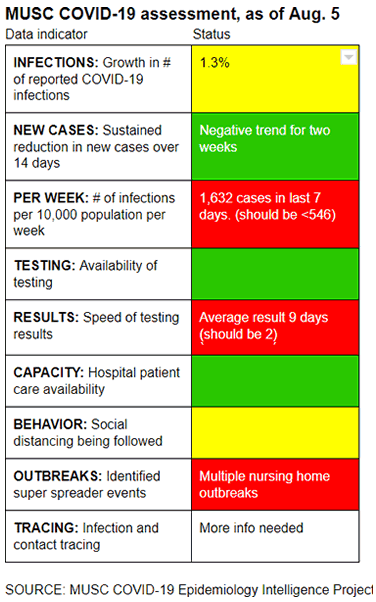 The MUSC COVID-19 Epidemiology Intelligence Project provides leading indicators in a color-coded dashboard that can help people make informed decisions. Indicators in the “green” are safe, while those that are yellow and red show more work needs to be done.
The MUSC COVID-19 Epidemiology Intelligence Project provides leading indicators in a color-coded dashboard that can help people make informed decisions. Indicators in the “green” are safe, while those that are yellow and red show more work needs to be done.
According to the project, “an Institute for Health Metrics and Evaluation chart from the website illustrates the level of the expected impact in South Carolina [on several indicators], and experts will continue to monitor the data and make adjustments to operations, as needed.
“MUSC’s goal is to deliver health care in a safe and reliable environment, while pushing forward to enable a rapid and successful revitalization of the economy. Current situation assessments for MUSC Health – Charleston (Charleston, Berkeley and Dorchester counties), MUSC Health Florence, and MUSC Health Lancaster divisions are available on this site.”
Here’s what you can learn through key indicators on project’s situation assessment, as of Aug. 5:
IN THE GREEN: We get thumbs up thanks to a negative trend for the last two weeks and because we have enough diagnostic testing available. Hospitals also can treat patients needing hospitalization without being in crisis.
IN THE YELLOW: We’re in the yellow, but with the seven-day average of 1.3 percent growth in new infections, we’re close to the green level of less than 1 percent. There’s also still concern that people aren’t following social distancing guidelines enough. R
IN THE RED: There are still way too many cases of new infections reported per week to be able to handle the disease from a medical care standpoint. As of Aug. 5, there were 1,662 cases per week, when there needed to be fewer than 546 to be safe. The area also is in the red for speed of diagnostic testing and super spreader events at nursing homes.
- Click here to learn more about the project and to find other tools.
Sales tax holiday was lipstick on policy pig
By Andy Brack, editor and publisher | Let’s see how excited we got about the sales tax holiday put on by the state over the past weekend:
Whoop. Nope. Hooray. Nah. Yahoo. Not quite.
 South Carolina’s annual sales tax holiday is not only very bad public policy, it isn’t pandemic-friendly. In normal circumstances, the tax-free weekend is a bad idea because of the multiple inequities it creates. But during the coronavirus pandemic, it is extra risky because it encourages people to get out to shop when they’d be smarter by staying at home.
South Carolina’s annual sales tax holiday is not only very bad public policy, it isn’t pandemic-friendly. In normal circumstances, the tax-free weekend is a bad idea because of the multiple inequities it creates. But during the coronavirus pandemic, it is extra risky because it encourages people to get out to shop when they’d be smarter by staying at home.
If you’re going to shop this holiday for everything from school supplies and clothes to bridal gowns (yes, they qualify) to computers, do it online or keep socially-distanced. Some other items that qualify for some unknown reasons: bedding, diapers, blankets, towels, sleepwear, purses and pillows. Like those are used during school.
The Aug. 7-9 sales tax holiday from the state’s 6 percent sales tax was nothing but a legislative gimmick — a giveaway to people paying attention. Annually, South Carolina’s 5 million people save about $3 million during the 3-day holiday — less than a dollar a person.
This year, 16 states have sales tax holidays. South Carolina has offered one since 2000.
The biggest problem with sales tax holidays is they don’t address real tax reform for the other 362 days of the year. South Carolina’s sales tax rate is high at 6 percent. It also exempts more than $3 billion of goods from any sales tax, has caps on items like cars and doesn’t do a good job of taxing services. All of the lost revenue for the state from these sources creates huge inequities and problems. It would be better, for example, to figure out a way to be fairer with sales tax by taxing more items throughout the year so the state could lower rates to, say, 4 percent. That 2 percent savings for a whole year would generate much more in savings for consumers and it would be fairer in the long run.
“Such political gimmicks distract from genuine, permanent tax relief,” according to the Tax Foundation. “If a state must offer a ‘holiday’ from its tax system, it is an implicit recognition that the tax system is uncompetitive. If policymakers want to save money for consumers, they should cut the sales tax rate year-round.”
The organization says any argument that tax holidays stimulate the economy are pure hogwash.
“Rather than stimulating new sales, sales tax holidays simply shift the timing of sales,” according to a white paper. And that actually makes it tougher for businesses because they often experience slumps before and after sales tax holidays. Any business owner would tell you she’d rather have steady, reliable, consistent sales than those that go down, then spike and then go down again. Why? Cash flow and inventory.
Other problems with sales tax holidays:
Pricing. There’s nothing in the law that keeps store owners from raising prices during sales tax holidays — so that they make more profit, even though you don’t pay the tax. It might be less expensive, for example, to get pens and paper on the weekend after the holiday when business is slower because stores have to offer lower prices to get people into emptier stores packed just a few days before.
Tax holidays can be confusing. They require a lot of public relations to explain and promote. They create complexity and instability in tax policy, which is best when it is simple. Businesses have to reprogram registers and absorb costs to train workers about the three-day holiday.
The timing can work against you. What if you’re not in the state during the holiday? Your neighbor gets the tax break; you don’t. From a policy perspective, “there is little economic justification,” the Tax Foundation argues, “for why a product purchased during one time period should be tax-exempt while the same product purchased in another time period should be taxable.”
If South Carolina really wants to help taxpayers get a break, it needs to reform its tax code, not continue fiddling with gimmicks. Deal with the sales tax pig and special interests that feed it. Don’t put lipstick on it and try to con consumers into thinking they’re getting something for nothing.
Andy Brack is editor and publisher of Charleston Currents. Have a comment? Have a comment? Send to: editor@charlestoncurrents.com.
Charleston RiverDogs
The public spiritedness of our underwriters allows us to bring Charleston Currents to you at no cost. This issue’s featured underwriter is the Charleston RiverDogs.
 In 2019, the team finished in second place in its league with a 73-66 record and had, as Club President Dave Echols explained in March, a great year. While the 2020 season has been compromised by COVID-19, check out what the RiverDogs are doing in August — youth baseball and culinary camps.
In 2019, the team finished in second place in its league with a 73-66 record and had, as Club President Dave Echols explained in March, a great year. While the 2020 season has been compromised by COVID-19, check out what the RiverDogs are doing in August — youth baseball and culinary camps.
The Lowcountry’s leader in sports entertainment, Charleston RiverDogs baseball is an attractive, affordable medium for your group or business. The RiverDogs develop the next major league stars for the 27-time World Champion New York Yankees at one of the finest ballparks in Minor League Baseball — Joseph P. Riley, Jr. Park.
Three short words sum up the everyday approach taken by the Charleston RiverDogs front office. The brainchild of club President Emeritus Mike Veeck, the nine-letter phrase “Fun Is Good” is meant to be a guideline and daily reminder of how employees should approach their jobs and in turn capture the imagination of the fans to turn them into repeat customers.
- Visit the ‘Dogs online at: RiverDogs.com
- To meet all of our underwriters, click here.
It’s time to debunk the myth of school choice
By Jen Gibson, special to Charleston Currents | Normally this time of year, my son and I are on the hunt for new shoes and the perfect pencil pouch. This year, we are struggling with masks and stocking up on hand sanitizer.
Like most parents, our family is wrestling with decisions about our work schedules, our vulnerable parents, and our child’s academic and social needs. All of our energy is focused on supporting students, teachers and our community during this unprecedented crisis.
That is why I was shocked and saddened when U.S. Sen. Tim Scott, Gov. Henry McMaster and S.C. Rep. Nancy Mace, R-Daniel Island, took advantage of this crisis to declare war on our public schools with their coordinated effort to move tax dollars allocated for public schools into private schools.
Under the guise of giving parents a choice, deceitful Republicans are trying to divert millions of our tax dollars to subsidize elite private schools. They argue that low-income students and parents deserve the choice to opt out of their poorly-performing public school. I have bad news for them. Research proves that vouchers for private schools will not improve educational outcomes for students.
Forget the fact that vouchers won’t even pay for the basic tuition at a local private school. Let’s talk about book fees, uniform costs, fieldtrip fees, transportation costs and the loss of income for the parent who no longer has access to before- and after-school childcare. Most students will stay in their neighborhood public school because a private school education is still out of reach.
Those who can scrape together the additional money to add to the government assistance will have to navigate the complicated world of evaluating private schools. These schools do not have to meet the same education standards as our public schools and are not legally required to provide accommodations to students with special needs.
In South Carolina, the money to pay for the tax credit comes directly from the budget of the public school the student would have attended. Tax money collected for public schools which are supposed to benefit the entire community will instead benefit individual students and private businesses. This weakens our public schools, and it does not guarantee individual students will have access to a better education.
Since 2008, South Carolina House members have not fully funded the Base Student Cost. They use a loophole in the law to avoid appropriating the actual cost of providing every student with even a minimally-adequate education. If the voucher/choice legislation that has been proposed passes, the state legislature will take even more money away from our cash-strapped public schools and jeopardize the education system responsible for over 90 percent of our students.
Do you know what would make education choices easier for parents? Public schools that deliver more than a minimally-adequate education for every student.
Let’s try that first.
Jen Gibson, who lives in a city of Charleston part of Berkeley County, is the Democratic nominee for S.C. House District 99 in Berkeley and Charleston counties. This commentary originally was published in Statehouse Report.
Lawmakers get grades on conservation
Staff reports | The Conservation Voters of South Carolina released its 2019-2020 Conservation Scorecard this week. Some lawmakers receive lower scores because they didn’t vote on either one or more of five bills in the House or vote on the one conservation bill in the Senate.
CVSC Deputy Director Rebecca Haynes said: “If you miss one of those, it’s going to dramatically affect your score.” It likely hurt freshman lawmakers the most, she said.
In other news:
![]() Special election on Tuesday. Voters in the James Island-anchored House District 115 will determine Tuesday who will finish out the term of former Rep. Peter McCoy, who was plucked this year from the legislature to become U.S. Attorney. The term will only last a couple months before the general election. Republican Josh Stokes, Democratic candidate Spencer Wetmore and Green Party candidate Eugene Platt are competing for the seat. Read more.
Special election on Tuesday. Voters in the James Island-anchored House District 115 will determine Tuesday who will finish out the term of former Rep. Peter McCoy, who was plucked this year from the legislature to become U.S. Attorney. The term will only last a couple months before the general election. Republican Josh Stokes, Democratic candidate Spencer Wetmore and Green Party candidate Eugene Platt are competing for the seat. Read more.
Terminal set for March opening. The new Hugh K. Leatherman Terminal being built in North Charleston is on track to open in March 2021, the S.C. Ports Authority says. “The Leatherman Terminal will enable S.C. Ports to handle more cargo and bigger ships,” S.C. Ports President and CEO Jim Newsome said last week in a statement. “Businesses depend on us to efficiently move their cargo, and this flow of goods creates more jobs and investment in South Carolina.” Phase One of the facility will add the ability of the port to handle an extra 700,000 containers a year. When complete, it will be able to handle an extra 2.4 million.
Colleges face financial reckoning. South Carolina’s public colleges and universities, which have become more reliant on tuition and received fewer dollars in state funds over the past 20 years, may face a semester — and potentially a year — of financial challenges, though officials say no closures appear imminent as in other parts of the country. The head of the S.C. Commission on Higher Education said he’s watching as colleges face declines in revenue with the same bills to meet and increased expenses going into the fall semester. “I’m not sure it’s a perfect storm but it’s a lot of things blowing together in one place (and) a likelihood of increased expenses and decreased revenues,” Rusty Monhollon said. “I don’t see (closures of institutions) in South Carolina, at least not in the short term.” Read the full story in Statehouse Report.
Statehouse Report’s Lindsay Street contributed to this section. Have a comment? Send to: editor@charlestoncurrents.com
Got something to say? Let us know by mail or email
We’d love to get your impact in one or more ways:
Send us a letter: We love hearing from readers. Comments are limited to 250 words or less. Please include your name and contact information. Send your letters to: editor@charlestoncurrents.com. | Read our feedback policy.
Tell us what you love about the Lowcountry. Send a short comment – 100 words to 150 words – that describes something you really enjoy about the Lowcountry. It can be big or small. It can be a place, a thing or something you see. It might be the bakery where you get a morning croissant or a business or government entity doing a good job. We’ll highlight your entry in a coming issue of Charleston Currents. We look forward to hearing from you.
Where’s this fountain?
Here’s a fountain somewhere in Charleston County. Where? Send your best guess to editor@charlestoncurrents.com. And don’t forget to include your name and the town in which you live.
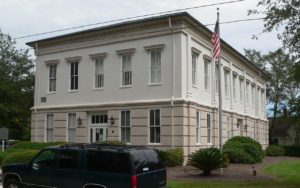 Our most recent mystery, “Did it move?” shows the Darby building in the Old Village part of Mount Pleasant. The question we asked was a twist … because the building didn’t move, but the county did. The building originally was the Berkeley County Courthouse, but Berkeley County moved its county seat from Mount Pleasant to Moncks Corner more than 100 years ago.
Our most recent mystery, “Did it move?” shows the Darby building in the Old Village part of Mount Pleasant. The question we asked was a twist … because the building didn’t move, but the county did. The building originally was the Berkeley County Courthouse, but Berkeley County moved its county seat from Mount Pleasant to Moncks Corner more than 100 years ago.
“Mount Pleasant moved from Charleston County to Berkeley County in 1882, and this building was the county courthouse until the Berkeley county seat moved from Mount Pleasant to Moncks Corner in 1895,” Jay Altman of Columbia writes. “Mount Pleasant then moved back into Charleston County. This building has been a courthouse, seminary, newspaper office, church and town hall. In 1991, it was named the Darby Building, for former Mount Pleasant Mayor G. Magrath Darby, Jr. Today it is the Parks and Facilities building for the Town of Mount Pleasant.”
Congrats to the other readers who correctly identified the building: Bill Segars of Hartsville; George Graf of Palmyra, Va.; Chris Brooks of Mount Pleasant; Charles Darby and Joe Mendelsohn, both of Charleton ; Marnie Huger of Richmond, Va.; and Allan Peel of San Antonio, Texas.
- Send us a mystery: If you have a photo that you believe will stump readers, send it along (but make sure to tell us what it is because it may stump us too!) Send it along to editor@charlestoncurrents.com.
Redux opens new Macintosh exhibition today
Staff reports | A new exhibition of works by Gret Macintosh opens Aug. 10 at Redux Contemporary Art Center to showcase connections within Lowcountry landscapes. “Connections,” curated by Mia Loia, will be on display through Oct. 24.
The show features looks at physical connections between places, such as waterways, roads, and bridges, that the artist has experienced over the last 15 years of living in the Charleston area. According to Redux, “maps provide a universal language, unique to each viewer. While visually illustrating the relationships between places from an aerial view, they also show the ties of communities, marking the points of importance for the region they depict.”
The works on display were “created during a time of both social and personal upheaval, this collection of paintings serves as a reflection on both the literal and figurative ties that link us together in the human experience.”
Macintosh, a native of Burlington, N.C., earned a bachelor’s degree from N.C. State University. In 2018, she became a full-time artist.
- The exhibition is open 11 a.m. to 4 p.m., Mondays and Wednesdays; 11 a.m. to 3 p.m. Fridays; and by appointment. More.
Also on the calendar:
![]() Studio Works at Redux: Aug. 10-28, Redux Contemporary Art Center, Charleston. The center is presenting a solo exhibition featuring the work of North Charleston artist Fletcher Williams III. It features recent works on paper pulled directly from Williams’s studio. Highlights include 50 black-and-white single pickets evocative of featureless portraits, small-scale exploratory studies, and a collection of color-saturated works painted in synthetic and natural greens, lush blues, and bold turmeric tones. More.
Studio Works at Redux: Aug. 10-28, Redux Contemporary Art Center, Charleston. The center is presenting a solo exhibition featuring the work of North Charleston artist Fletcher Williams III. It features recent works on paper pulled directly from Williams’s studio. Highlights include 50 black-and-white single pickets evocative of featureless portraits, small-scale exploratory studies, and a collection of color-saturated works painted in synthetic and natural greens, lush blues, and bold turmeric tones. More.
Lowcountry Listens each Wednesday. Want some local music with real social distancing? Tune in each Wednesday at 6 p.m. to the Gaillard Center’s Lowcountry Listens program for new performances. To watch, go to the venue’s homepage, Facebook page or YouTube channel at 6 p.m. Wednesday. On tap this week on Aug. 12 is Muscle Memory: Poetry & Jazz with Marcus Amaker and Quentin Baxter. On Aug. 19: Chaquis Maliq The EccentroSoul 1 Woman Band.
Wine Down Wednesday: 5 p.m. to 7 p.m. on Aug. 19. Old Towne Creek County Park will host this event in West Ashley with wine and live music — a perfect pairing to relax at midweek. Food truck fare will be available. Cost: 15. Limited to 150 people. Advanced registration required.
Vintage market: Noon to 3 p.m., Sept. 13, via Instagram. Holy City Vintage Market will hold a virtual event to allow shoppers to view hundreds of items for purchase over three hours. How it works: Watch HCVM’s Instagram story as we repost items for sale from 20 local vintage, secondhand, and artisan vendors. Shoppers can DM individual shops to arrange purchase and no-contact shipping, drop-off, or pickup details. More.
From Etchings to Pastels: Through Nov. 29, Lowcountry Image Gallery, The Charleston Museum. The museum has partnered with the Pastel Society of South Carolina to present new interpretations of etchings stemming from the Charleston Renaissance Movement about 100 years ago. Learn more.
Online offerings:
- Gibbes Museum. You can enjoy lots of local art offerings through the website and social media accounts of the Gibbes Museum. At 10 a.m. on weekdays, the museum posts virtual readings and workshops on Facebook. Find more online.
- Avian Conservation Center. Access videos and live streaming presentations online to learn about what’s going on at the Center for Birds of Prey.
- Around the world. You can visit 500 museums across the world online through this Google amalgamation of sites.
If you have any online events, drop us a line (editor@charlestoncurrents.com) and make sure to put “Online event” in the subject line. Similarly, if you’ve got cool ideas for stuff to do while in isolation at home, send them our way.
NEW BOOK: 350 FACTS ABOUT CHARLESTON
Charleston firsts on golf, Black official, fire insurance
 With this issue, we begin publishing excerpts from a soon-to-be-published book, 350 Facts About Charleston. As you may know, the Holy City is celebrating the 350th anniversary of its founding this year. The staff at our sister publication, the Charleston City Paper, compiled lots of interesting facts that we think you’ll find entertaining and compelling.
With this issue, we begin publishing excerpts from a soon-to-be-published book, 350 Facts About Charleston. As you may know, the Holy City is celebrating the 350th anniversary of its founding this year. The staff at our sister publication, the Charleston City Paper, compiled lots of interesting facts that we think you’ll find entertaining and compelling.
- The new book comes out in mid-September. Pre-order a copy today.
Here are three factual snippets from the new book:
Birthplace of American golf. Golf in America got its start in 1786 in Charleston with the formation of the South Carolina Golf Club, whose members reportedly played on a bustling rectangle of land that stretched between what we know as Charleston and Beaufain streets and bounded by Rutledge and Barre streets. The area, called Harleston Green, seemed to disappear from historical records as a golf course around 1800. But that makes sense: Around that time, homes started being built in the area. Interesting tidbit: Some 432 golf balls and 96 clubs arrived in Charleston from England in 1743 as the first known shipment of golf equipment into the colonies.
S.C. educator was first Black man elected statewide in U.S. Francis Lewis Cardozo (1836-1903), born free in Charleston, founded the Avery Normal Institute in 1865. It was the first accredited secondary school for African Americans in Charleston. Today, its successor, the Avery Institute, is part of the College of Charleston. Cardozo also offered a big political first: He was elected S.C. secretary of state in 1868, becoming the first African American to hold a statewide office in the United States. He advocated for integrated public schools, which was supported by the legislature at the time. He resigned his seat to teach Latin at Howard University, but returned to South Carolina politics in 1872 and was elected state treasurer, serving until 1877 when the federal government began to remove federal troops that protected Black participation in politics and daily life. In 1878, Cardozo was appointed to the Treasury Department in Washington, D.C., later becoming principal of the Washington, D.C., Colored High School. He lived in the nation’s capital until his death in 1903.
Birthplace of fire insurance. The first fire insurance company in America was organized in February 1736 in Charleston with the formation of the Friendly Society for the Mutual Insuring of Houses Against Fire. According to an article from 1893, “John Fenwicke, Samuel Wragg and Charles Pinckney were chosen directors; John Crokat and Henry Peronneau, merchants, secretaries; Gabriel Manigault, treasurer; Gerelt Van Velesen and John Laurens, firemasters.” The company, however, “ceased business some six years later after its inception, as a result of a fire involving $1,250,000 of insurance, which was a very large sum in those times.” Reportedly, more than 300 buildings were destroyed in the Great Fire of 1740.
As more people stay home to deal with the coronavirus crisis, people are looking for things to do. You can find some fun things to do online in our calendar section below, but let us also encourage you to FORWARD your issue of Charleston Currents to your friends and encourage them to subscribe. It’s got a great price, as you know: Free! We hope they’ll enjoy our coverage.
- DONATE. Now also would be a great time to contribute as we deal with the crisis. In advance, thank you.
OUR UNDERWRITERS
Charleston Currents is an underwriter-supported weekly online journal of good news about the Charleston area and Lowcountry of South Carolina.
- Meet our underwriters
- To learn more about how your organization or business can benefit, click here to contact us. Or give us a holler on the phone at: 843.670.3996.
OUR TEAM
Charleston Currents offers insightful community comment and good news on events each week. It cuts through the information clutter to offer the best of what’s happening locally.
- Mailing address: 1316 Rutledge Avenue | Charleston, SC 29403
- Phone: 843.670.3996
Charleston Currents is provided to you weekly by:
- Editor and publisher: Andy Brack, 843.670.3996
- Contributing editor, common good, Fred Palm
- Contributing editor, money: Kyra Morris
- Contributing editor, Palmetto Poem: Marjory Wentworth
- Contributing editor, real estate: Digit Matheny
- Contributing photographer: Rob Byko
- Charleston Currents also uses content from the outstanding staff at the Charleston City Paper, a sister publication.
SUBSCRIBE FOR FREE
Subscriptions to Charleston Currents are free.
- Click here to subscribe.
- Unsubscribe. We don’t want to lose you as a reader of Charleston Currents, but if you must unsubscribe, you will have to do it through the email edition you receive. Just go to the bottom of any of your weekly newsletters and click the “unsubscribe” function. If that doesn’t work, please send us an email with the word “unsubscribe” in the subject line.
- © 2008-2020, City Paper Publishing, LLC. All rights reserved. Charleston Currents is published every Monday by City Paper Publishing LLC, 1316 Rutledge Ave., Charleston, SC 29403.


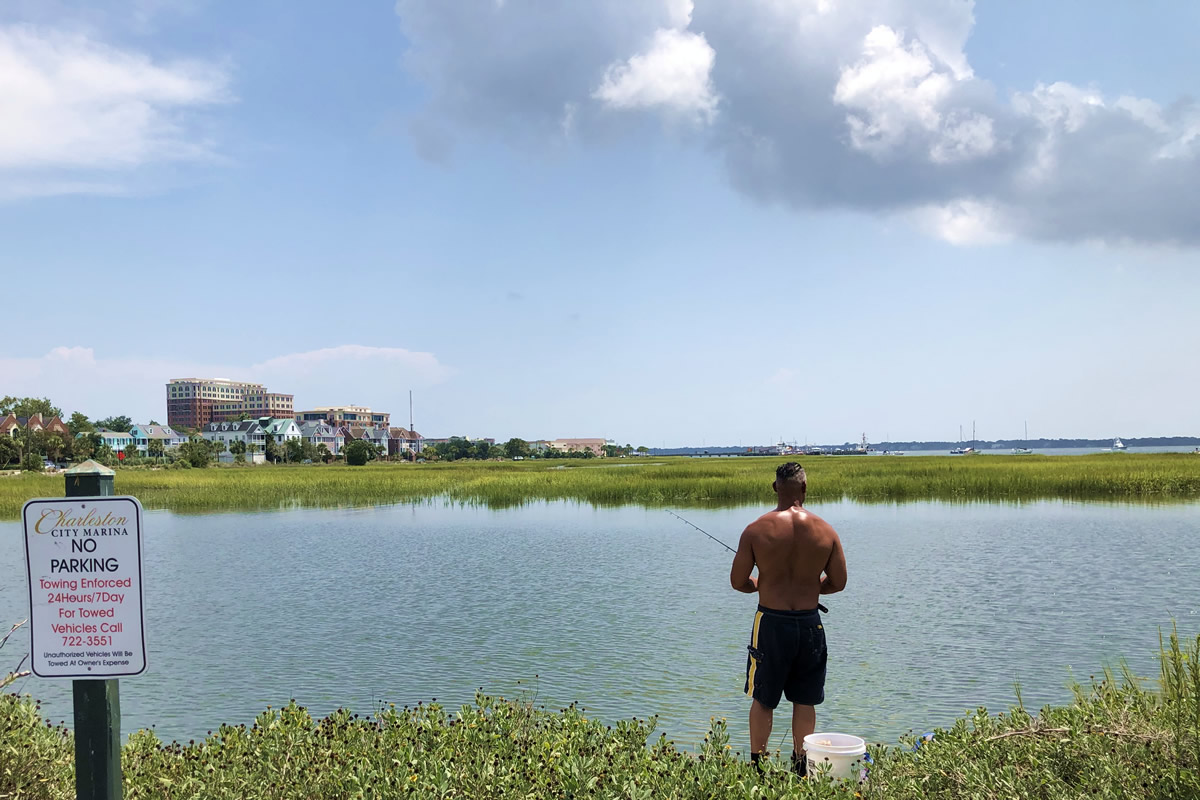
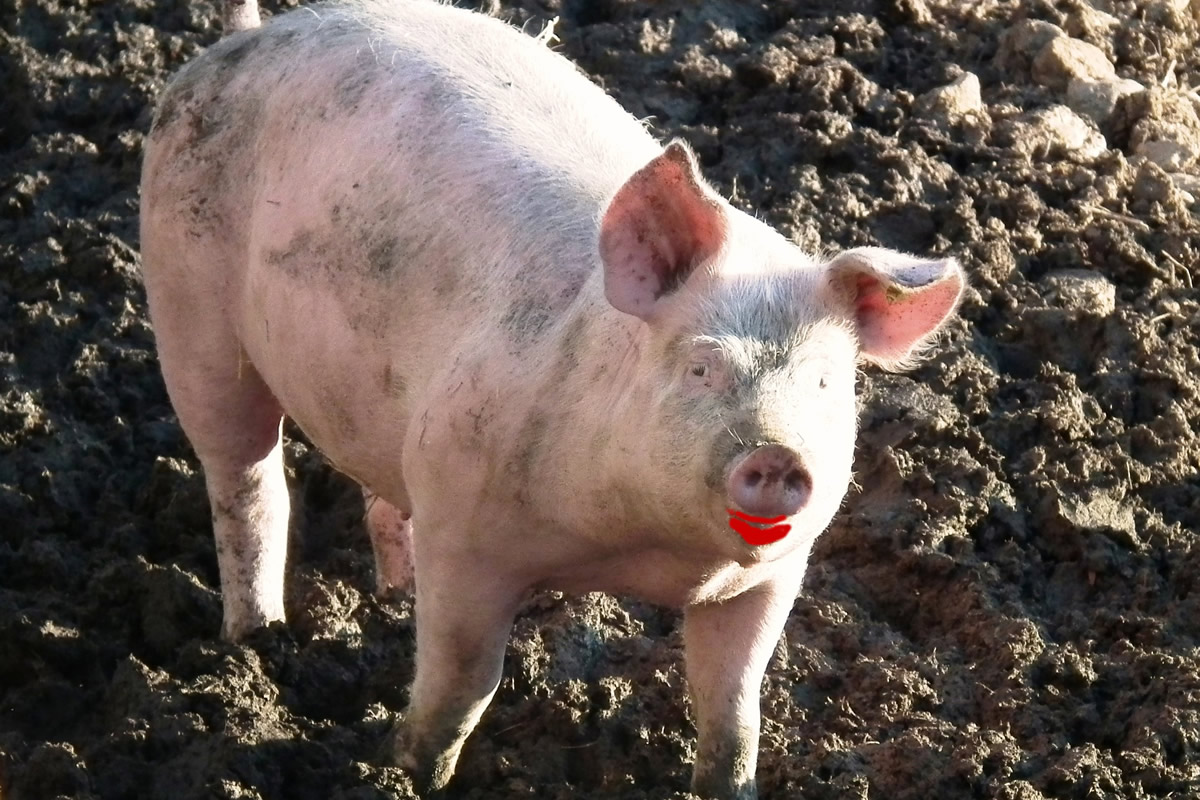

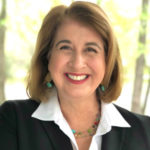

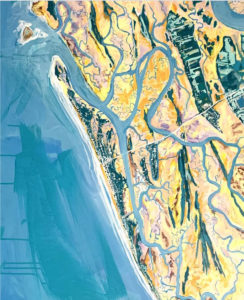

 We Can Do Better, South Carolina!
We Can Do Better, South Carolina!

























Pingback: NEW for 8/10: On virus levels, data; Policy pig; Vouchers – Charleston Currents